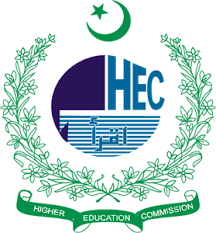“The Sanctity and Reverence of Shaʿāʾir Allah and the Responsibilities of Educational Institutions: A Research-Based Study”
شعائر اللہ کی عظمت و حرمت اور تعلیمی اداروں کی ذمہ داریاں:ایک تحقیقی مطالعہ
Keywords:
The Signs of Allah, Veneration of Signs, Faith and Piety, Religious Zeal, Righteous Predecessors, Religious Training, Islamic Civilization, Contemporary Challenges, Intellectual Invasion, Educational Institutions, Reform Measures, Islamic IdentityAbstract
This article is a scholarly and research effort that sheds comprehensive light on the concept of the symbols of Allah. While explaining the Quranic foundations of the symbols of Allah, it is made clear that the Holy Quran has declared the veneration of symbols as a sign of faith and piety and has described their respect as a means of protecting the religion and the spiritual growth of the servant. Similarly, the Prophetic Sunnah clearly proves that the Messenger of Allah (ﷺ) not only highlighted the importance of symbols through his words and deeds but also made their veneration an integral part of the intellectual and practical life of the Ummah.
If we look at it from a historical perspective, the symbols of Allah have played a very fundamental role in the development of Islamic civilization. In different periods, the observance of these symbols has given the Ummah unity, religious pride, and cultural identity. The opinions and sayings of the righteous predecessors further highlight the fact that the veneration of symbols is a guarantee of the stability of the religion and the survival of Islamic civilization.
In the modern era, however, several challenges have affected the sanctity of the rituals of Allah. Materialism has undermined the intellectual and spiritual balance of man, the invasion of Western intellectuals has promoted doubts and suspicions in Muslim societies, the weakness of religious education has distanced the new generation from its religious values, while the negative role of the media has played an important role in weakening the greatness of rituals. All these factors together are affecting the Islamic social and cultural structure.
In this context, this article highlights the responsibilities of academic and educational institutions to play an effective role in the intellectual and religious training of the new generation. These institutions should not only provide intellectual guidance regarding the reverence for Islamic rituals but also introduce such positive social reforms that can keep religious zeal, the greatness of Islamic rituals and cultural identity alive in the hearts of the new generation. Along with this, this paper also emphasizes that all segments of society, especially educational and intellectual centers, scholars, and the media, should work together to create an environment in which the veneration of the signs of Allah can be made a practical part of social life.









